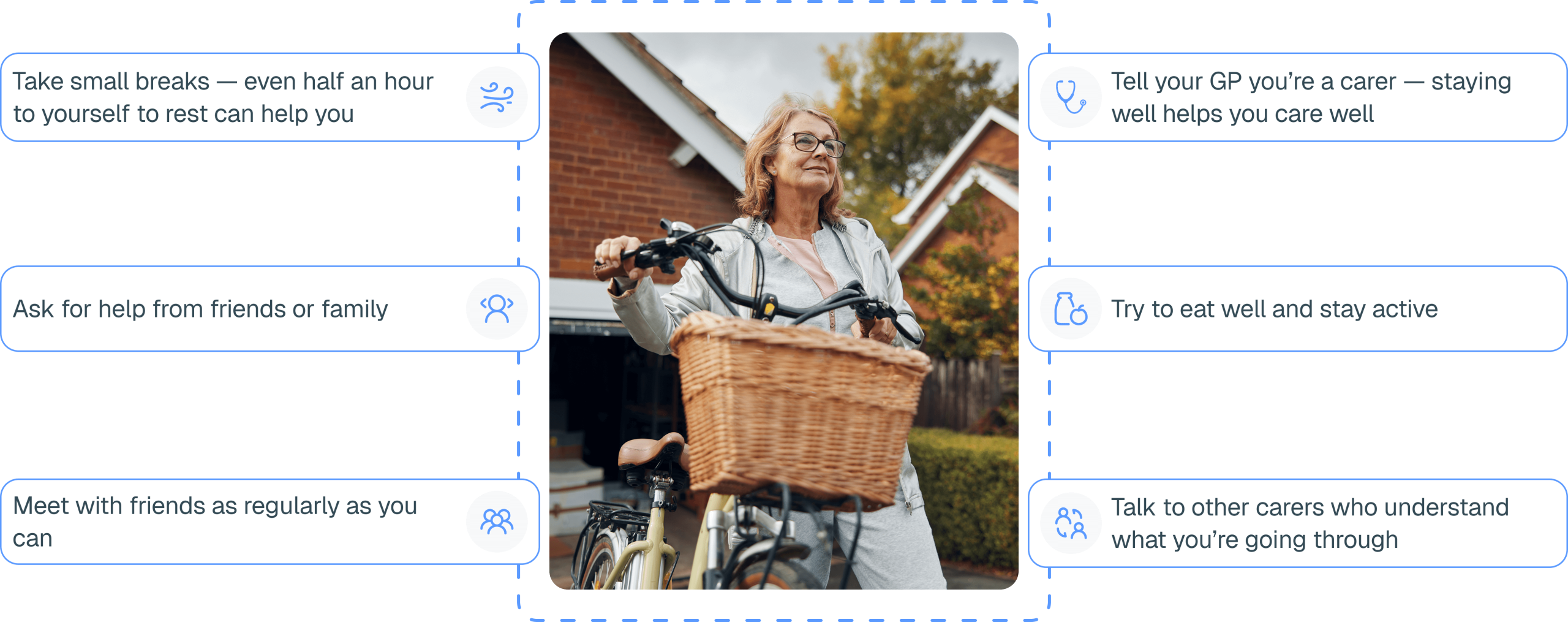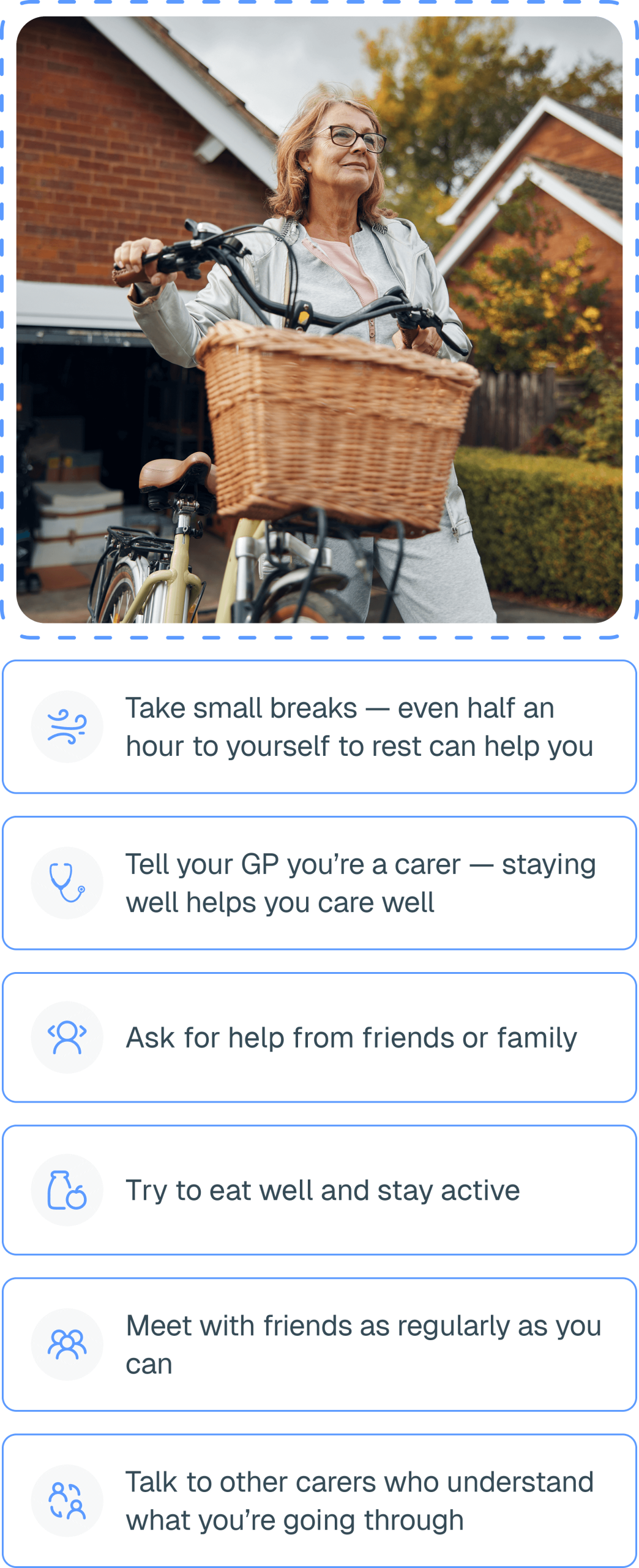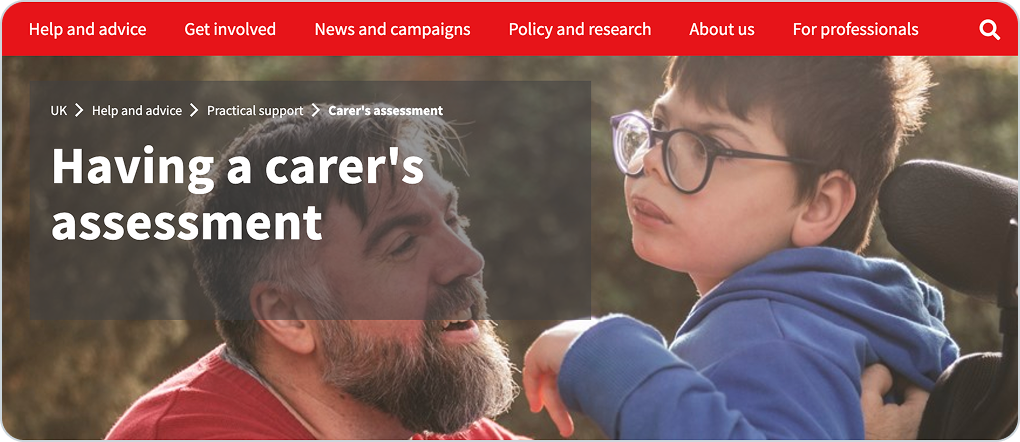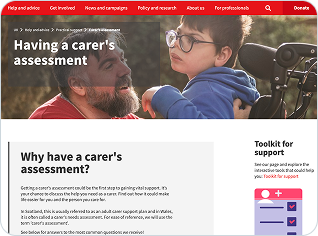Caring for someone with COPD
Caring for someone with COPD can be both rewarding and challenging — especially when it’s someone you love. You may be helping with everyday tasks, managing medication, or simply being there to offer reassurance. But over time, caring can also affect your own mental and emotional wellbeing.1
It’s normal to feel a mix of emotions — from stress and anxiety to guilt, sadness or even resentment. You’re not alone, and it’s okay to ask for support.1
Looking after yourself while caring for someone with COPD
Taking care of yourself is just as important as looking after the person you care for. If you’re running on empty, it’s harder to provide the support they need.1
Here are a few things you could try:1


Practical support for carers
As well as emotional support, there is practical help available too. You may be eligible for:
A carer’s assessment
Your local council can assess what support you need to carry on caring, such as help at home or respite care.
Find out more on Carers UK

Carer’s Allowance
If you care for someone for 35 hours a week or more, you might be eligible for financial support.2
Carer’s Credit
If you care for someone for 20 hours or more a week, this could help you fill gaps in your National Insurance record.2
Balancing work and care
Speak to your employer about flexible working or other support they might be able to offer.2
Life after caring for someone with COPD
Caring can become a big part of your identity. When that role changes — due to bereavement or a move into residential care — it can leave you feeling uncertain, even lost.3
Whether you’ve been a carer for months or many years, it’s normal to feel a wide range of emotions after your role ends. These might include:4,5
Grief and sadness
Emotional and physical exhaustion
A feeling of isolation
Feeling guilty
Feeling unwell or run down
Uncertainty about what comes next
There’s no right or wrong way to feel. Be kind to yourself. Take your time to adjust and seek support when you’re ready.
Where to find support after caring
You’re not alone. These organisations can help:
Cruse
Emotional and practical bereavement support
Carers UK
Guidance for former carers and life transitions
Dying Matters
Helping people talk more openly about end of life and grief
If you’re unsure where to start, speak to your GP or note it in your discussion list for your next appointment.
Abbreviations:
References:
- Asthma + Lung UK. Looking after yourself as a carer. Available at: https://www.asthmaandlung.org.uk/conditions/caring-someone-lung-condition/looking-after-yourself-carer. Accessed October 2025.
- Asthma + Lung UK. Work and benefits when you’re a carer. Available at: https://www.asthmaandlung.org.uk/conditions/caring-someone-lung-condition/work-benefits-when-youre-carer. Accessed October 2025.
- Carers UK. When caring ends or changes. Available at: https://www.carersuk.org/help-and-advice/practical-support/when-caring-ends-or-changes/. Accessed October 2025.
- Carers UK. Life after caring. Available at: https://www.carersuk.org/help-and-advice/practical-support/life-after-caring/. Accessed October 2025.
- Carers UK. When caring ends or changes. Available at: https://www.carersuk.org/media/2n2do3o4/eng-when-caring-ends-of-changed-2023-2024-final-version-pdf.pdf. Accessed October 2025.